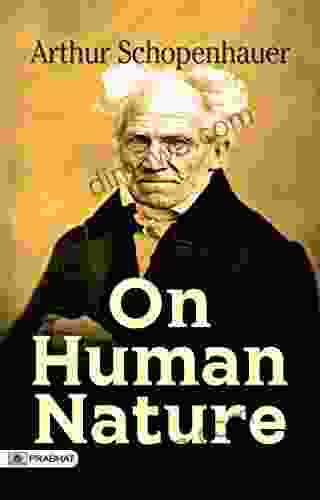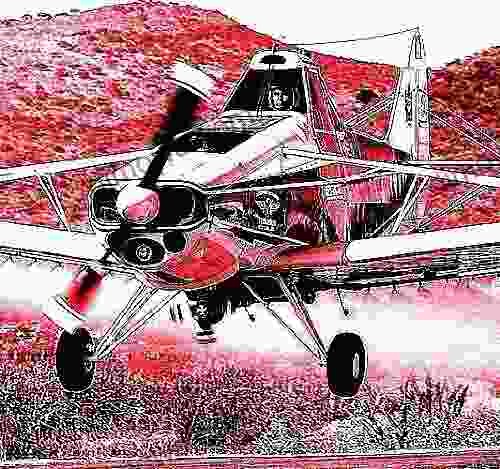Unraveling the Enigma of Human Nature: A Journey with Arthur Schopenhauer's Masterpiece

"
In the realm of philosophy, Arthur Schopenhauer's "On Human Nature" stands as a towering achievement, a profound exploration of the enigmatic depths of human existence. Published in 1851, this magnum opus has captivated scholars and readers alike, offering a unique and compelling perspective on our nature and motivations.
4.6 out of 5
| Language | : | English |
| File size | : | 764 KB |
| Text-to-Speech | : | Enabled |
| Screen Reader | : | Supported |
| Enhanced typesetting | : | Enabled |
| Word Wise | : | Enabled |
| Print length | : | 36 pages |
A Philosophical Odyssey into the Human Psyche
Schopenhauer's work is not merely an academic treatise but an invitation to embark on a philosophical odyssey, a journey into the labyrinthine corridors of the human psyche. Through lucid prose and rigorous argumentation, the philosopher unravels the intricate tapestry of human behavior, exposing the underlying drives and desires that shape our actions.
At the heart of Schopenhauer's philosophy lies the concept of the "Will," an insatiable force that propels us forward, driving our pursuit of pleasure and avoidance of pain. This Will, according to Schopenhauer, is the fundamental essence of human nature, an irrational and relentless urge that manifests itself in all aspects of our being.
Unveiling the Dark Sides of Human Nature
Schopenhauer's analysis of the human psyche is not a flattering one. He paints a stark portrait of humanity, revealing the dark undercurrents that often lurk beneath the surface of our civilized facade. The philosopher argues that we are essentially selfish and driven by a fundamental hostility towards others.
This pessimistic view is particularly evident in Schopenhauer's examination of the social aspects of human nature. He sees society as a breeding ground for envy, strife, and competition. Individuals are constantly vying for status, wealth, and power, often at the expense of others.
The Path to Redemption: Art and Asceticism
Despite the bleakness of his analysis, Schopenhauer does not leave us without hope. He identifies two potential paths to redemption: art and asceticism.
Art, according to Schopenhauer, provides us with a momentary respite from the torments of the Will. Through the contemplation of beauty, we can transcend our selfish desires and experience a glimpse of the true nature of reality.
Asceticism, on the other hand, involves the denial of the Will. By renouncing our worldly possessions and desires, we can break free from the cycle of suffering and achieve a state of inner peace.
A Legacy of Influence and Provocation
"On Human Nature" has had a profound impact on the development of Western thought. Its insights into the human psyche have resonated with generations of philosophers, psychologists, and writers.
The book's pessimistic view of human nature has been influential in the work of later thinkers such as Friedrich Nietzsche and Sigmund Freud. Nietzsche's concept of the "will to power" bears striking similarities to Schopenhauer's Will, while Freud's psychoanalytic theories owe a debt to Schopenhauer's exploration of the unconscious.
A Must-Read for Intellectual Explorers
For those seeking to understand the enigmatic nature of human existence, "On Human Nature" is an essential read. Schopenhauer's penetrating insights and provocative arguments offer a unique lens through which to view ourselves and the world around us.
Whether you agree or disagree with Schopenhauer's s, this seminal work will undoubtedly challenge your assumptions and stimulate your intellect. It is a book that will stay with you long after you finish reading it, leaving a lasting impact on your understanding of human nature.
So embark on this philosophical odyssey, delve into the depths of human nature, and discover the enduring relevance of Arthur Schopenhauer's timeless masterpiece.
4.6 out of 5
| Language | : | English |
| File size | : | 764 KB |
| Text-to-Speech | : | Enabled |
| Screen Reader | : | Supported |
| Enhanced typesetting | : | Enabled |
| Word Wise | : | Enabled |
| Print length | : | 36 pages |
Do you want to contribute by writing guest posts on this blog?
Please contact us and send us a resume of previous articles that you have written.
 Book
Book Novel
Novel Page
Page Chapter
Chapter Text
Text Story
Story Genre
Genre Reader
Reader Library
Library Paperback
Paperback E-book
E-book Magazine
Magazine Newspaper
Newspaper Paragraph
Paragraph Sentence
Sentence Bookmark
Bookmark Shelf
Shelf Glossary
Glossary Bibliography
Bibliography Foreword
Foreword Preface
Preface Synopsis
Synopsis Annotation
Annotation Footnote
Footnote Manuscript
Manuscript Scroll
Scroll Codex
Codex Tome
Tome Bestseller
Bestseller Classics
Classics Library card
Library card Narrative
Narrative Biography
Biography Autobiography
Autobiography Memoir
Memoir Reference
Reference Encyclopedia
Encyclopedia Stewart Liff
Stewart Liff Jessica Brody
Jessica Brody Ziad Zammar
Ziad Zammar Tj Spence
Tj Spence William J Dolan
William J Dolan Mark P Witton
Mark P Witton Tom Bethell
Tom Bethell Anike Hage
Anike Hage Tom Daldin
Tom Daldin Philip Marsden
Philip Marsden John Tyson
John Tyson Puja Guha
Puja Guha Brian D Biro
Brian D Biro Sophie Mcaloon
Sophie Mcaloon Phil Phillips
Phil Phillips Troy Sandidge
Troy Sandidge Wolfgang Daunicht
Wolfgang Daunicht Steve Webb
Steve Webb Tim Wendel
Tim Wendel Susan Van Allen
Susan Van Allen
Light bulbAdvertise smarter! Our strategic ad space ensures maximum exposure. Reserve your spot today!

 Robert BrowningUnveiling the Epic Mei Hua Trilogy De Voe: A Journey of Courage, Identity,...
Robert BrowningUnveiling the Epic Mei Hua Trilogy De Voe: A Journey of Courage, Identity,...
 Dan HendersonSkateboarding Legendary Tricks Steve Badillo: Master the Art of Vert Skating
Dan HendersonSkateboarding Legendary Tricks Steve Badillo: Master the Art of Vert Skating Jett PowellFollow ·10.6k
Jett PowellFollow ·10.6k Arthur MasonFollow ·5.2k
Arthur MasonFollow ·5.2k Travis FosterFollow ·4k
Travis FosterFollow ·4k Gage HayesFollow ·2.7k
Gage HayesFollow ·2.7k Lucas ReedFollow ·2.1k
Lucas ReedFollow ·2.1k Neil GaimanFollow ·13.9k
Neil GaimanFollow ·13.9k Milan KunderaFollow ·15k
Milan KunderaFollow ·15k Banana YoshimotoFollow ·15.2k
Banana YoshimotoFollow ·15.2k

 F. Scott Fitzgerald
F. Scott FitzgeraldLove Me Better, Love Me Right: A Journey of...
Unveiling the Profound Power of Emotional...

 Eddie Powell
Eddie PowellHow To Make Your Muzzleloader Most Effective And Keep It...
In the realm of firearms, muzzleloaders hold...

 Andy Hayes
Andy HayesPrepare Mentally, Physically, and Emotionally for the...
Embark on a Transformative Odyssey to...

 Oliver Foster
Oliver FosterThe Bittersweet Bride: Advertisements for Love
A Poignant...
4.6 out of 5
| Language | : | English |
| File size | : | 764 KB |
| Text-to-Speech | : | Enabled |
| Screen Reader | : | Supported |
| Enhanced typesetting | : | Enabled |
| Word Wise | : | Enabled |
| Print length | : | 36 pages |












